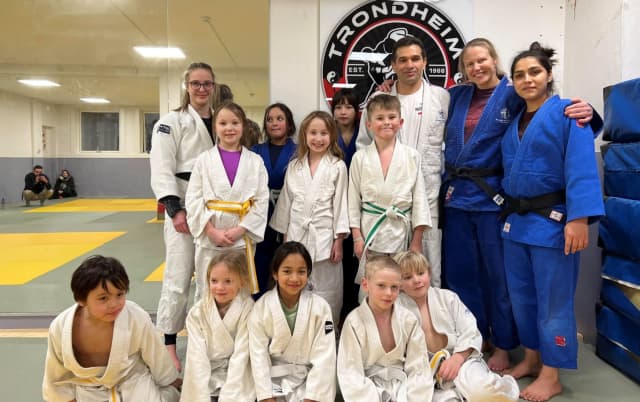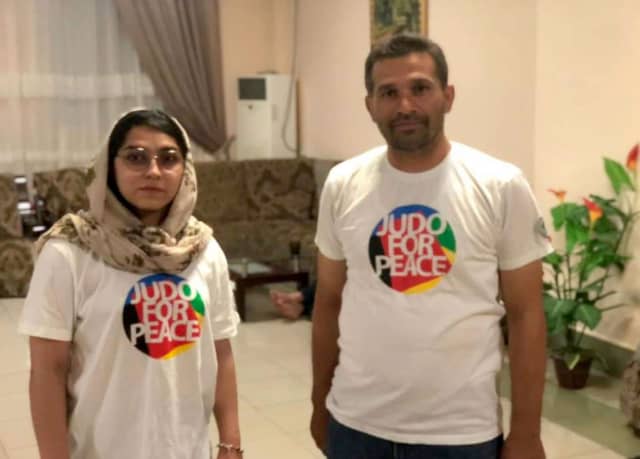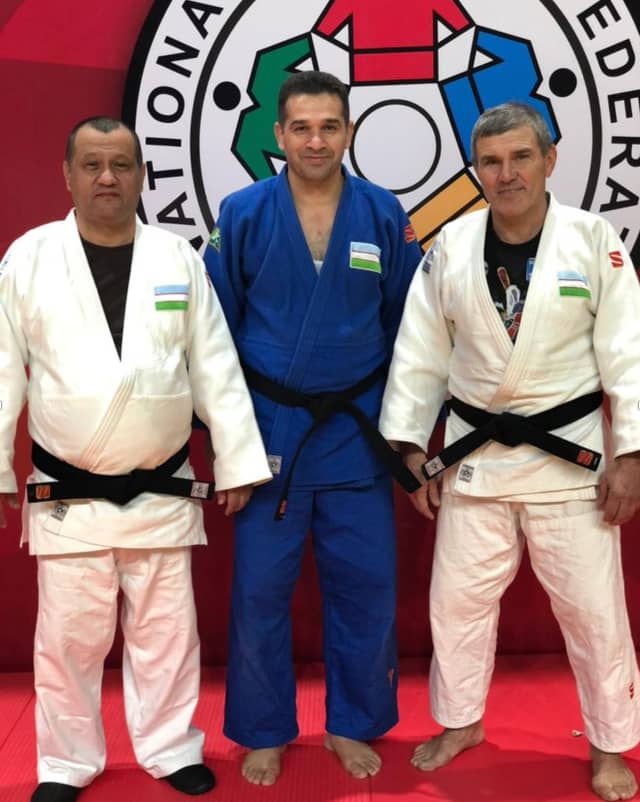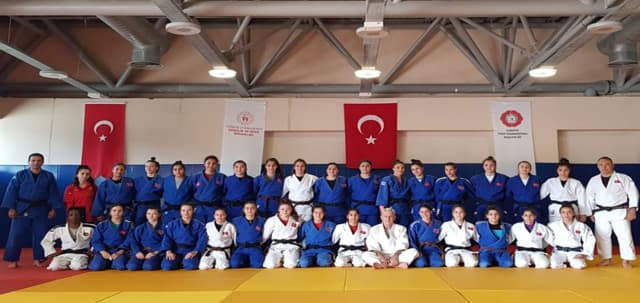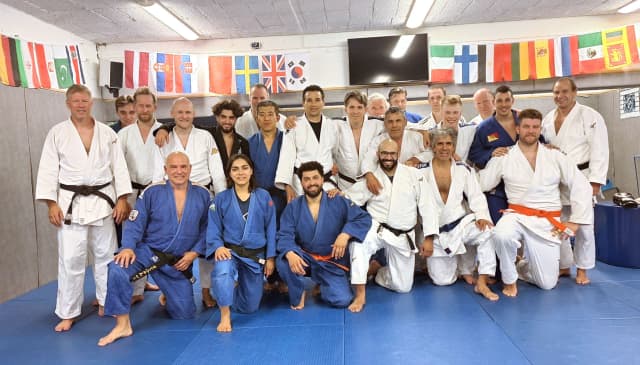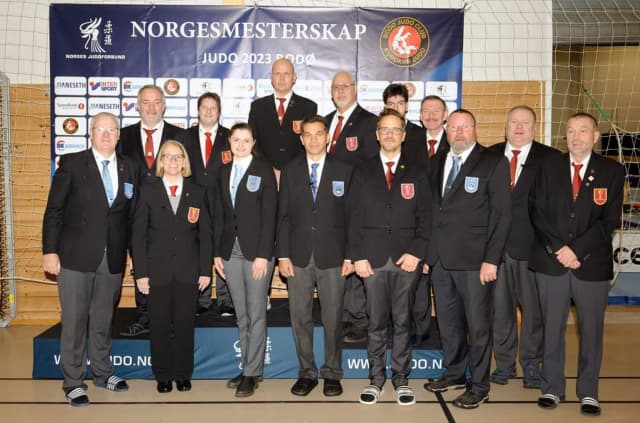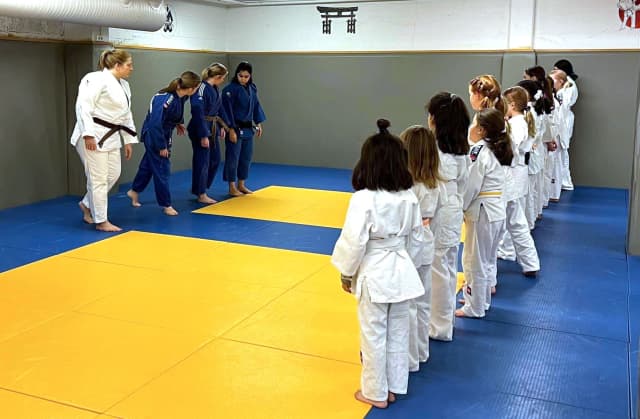“I arrived in Norway on 14th December 2022. I am now living in Oslo, the capital city of the country, with my family. I have two sons and two daughters. My children are aged from 8 to 15 years old.
When we arrived in Norway, our first judo training session was with with Birgit Ryningen, President of the Judo for Fred programme (Judo for Peace). Since 2002 she has been supporting Afghanistan’s children, juniors and women and the Afghanistan Judo Federation. We appreciate her hard work. She worked very hard for us to arrive in Norway.
Norway has a very good system for refugees, those coming from several countries. The government does a lot to help our children have access to education or work and with getting to know the culture. Today my family is receiving that same support that is offered to other refugees.
Everything began on 15th August 2021 when the Taliban took over power in Afghanistan. I was one out of millions of people in my country who were living in fear; I felt insecure. I tried many times to flee from Afghanistan with military aeroplanes but I couldn't.

On 19th September 2021, with the help of the IJF, me and one female judoka, Qudsia Khalili, fled to Uzbekistan. We stayed there, thanks to the support of the Uzbek Judo federation, for 7 months. Then we moved to Turkiye where we spent another 8 months, with the help of the Turkish Judo Federation.
It was the worst period of our lives because we had left our country, families and friends but we could survive thanks to the judo family. Everyone was very kind to us. We are very thankful to the IJF. They helped us to get out of Afghanistan. We will never forget the kindness and support from the president of the Uzbekistan Judo Federation and the president of the Turkish Judo Federation. We have incredible memories from being with the judo players and coaches of both countries. We were in a very bad situation at that time. They helped us a lot, like we were their own family and they gave us energy and hope.
Today I am joining the judo training in Oslo regularly, with Qudsia Khalili, at the NJJK judo club. Once again, everyone is very kind to us. For the last 6 months I have been participating in all the judo competitions in Norway, as a referee.
Judo is a big part of my life and I can say that judo saved my life. I began with the sport when I was 14 years old. The first time I went to the judo club with my friends, I saw judoka respecting each other. They were very friendly and I thought that it was a good place for training and connecting with other people. I have made connections with so many different people under the roof of the sport of judo, people who work in different places in Afghan society and those who helped me a lot in my life.
Today my first goal is to help others through judo, those who are living in very bad situation; I always want to give them hope. My second goal is to become an international judo referee.
In Afghanistan, I was national champion for ten years at -66 kg and I participated in many competitions outside Afghanistan. I won a bronze medal at the South Asian Judo Championship in 2005. I also participated in the Jigoro Kano Cup in 2006 in Japan and my last competition as an athlete was in the Asian Judo Championships, Kuwait, 2007. I have a lot of good experience. In 2014, I passed the IJF continental referee certification. I have trained women and men, juniors and seniors, through different periods of my life in Afghanistan. Since 2002, I was also the Judo for Fred project co-ordinator.
Living in Norway brings a lot of challenges for refugees: learning a new language, a new culture, the need to solve most of problems electronically, and basically starting everything from zero. In my country we have an expression, “Friends are better than money and property.” It has happened in my life, when I left Afghanistan, I was jobless and I did lose everything. Through judo, I had a lot of friends who helped me during the worst period of my life, so judo has a very special meaning in my life.
Together with my family, we are very thankful for the IJF President Marius Vizer, Secretary General Dr Lisa Allan, Judo for Peace Director Nicolas Messner, Finnish Judo President Esa Niemi and of course, Judo for Fred President Birgit Ryningen, Norway Judo Federation board member Stig Traavik, and IJF Head of the Police Commission Johannes Daxbacher. I have received messages from them regularly and that helps me to be strong and patient.
I have learned from judo how to fight with life's problems. After every judo training session, I would forget all the problems I had. I hope that all judoka can use judo as a tool in their daily lives, especially when they are in a bad situation. By doing so they will be successful.
Qudsia Khalili is also living in Oslo. She has started school and she has the goal of being a doctor in the future. She is teaching judo to children twice a week in the NJJK judo club and she has a part time job twice a week too.”
Life has changed a lot for Farhad Hazrati and Qudsia Khalili. They went through the most difficult time in their lives, facing danger and even death. They came from hell to a more quiet life. Thanks to judo and the judo family, they were able to survive. Today they can rebuild something because they learned values and skills for life that only sport and judo can teach. Their message is a message of hope, the hope for better days for everyone. Today they just want normality, which means peace and tranquility, because they know that their lives will never be quite normal. It can now be exciting and positive too.
To conclude this incredible testimony, we left the conclusion to Birgit, who played a key role in helping Farhad, "I am very happy and relieved that they are finally in Norway. I admire their dedication and what they did for unfortunate children, girls and women in Afghanistan. The fact that they had to flee their homes because of their work for women's right to do judo makes me both sad and mad. It is absurd. What they went through is more than I can understand. But we, in judo Norway are very lucky to have them here. I will forever remember the day when I finally saw them safe in Norway."

